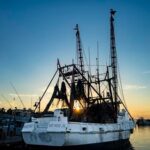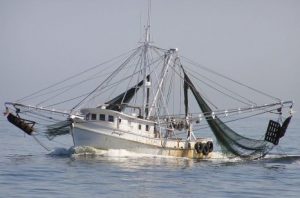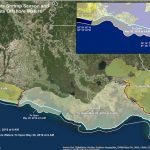Daily Archives: September 16, 2024
Oregon Tribes sue federal government to stop offshore wind auction
 The Confederated Tribes of Coos, Lower Umpqua and Siuslaw Indians are suing the federal government in an attempt to stop Oregon’s first-ever offshore wind energy auction scheduled to take place next month. The lawsuit, filed late on Friday, challenges the U.S. Bureau of Ocean Energy Management’s environmental analysis and decision to proceed with the sale of leases for two offshore wind energy areas totaling nearly 195,000 acres, one near Coos Bay and the other near Brookings. The wind energy areas are within the tribes’ ancestral territory. The tribes say they contain critical fish and marine wildlife habitat, viewsheds of significant cultural and historic significance and key tribal and commercial fishing grounds. more, >>CLICK TO READ<< 15:27
The Confederated Tribes of Coos, Lower Umpqua and Siuslaw Indians are suing the federal government in an attempt to stop Oregon’s first-ever offshore wind energy auction scheduled to take place next month. The lawsuit, filed late on Friday, challenges the U.S. Bureau of Ocean Energy Management’s environmental analysis and decision to proceed with the sale of leases for two offshore wind energy areas totaling nearly 195,000 acres, one near Coos Bay and the other near Brookings. The wind energy areas are within the tribes’ ancestral territory. The tribes say they contain critical fish and marine wildlife habitat, viewsheds of significant cultural and historic significance and key tribal and commercial fishing grounds. more, >>CLICK TO READ<< 15:27
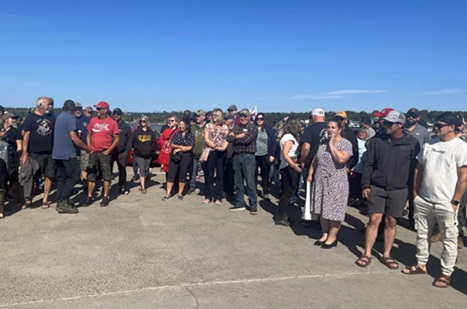
More calls for Canada’s Fisheries Minister to resign
There are growing calls for Canada’s fisheries minister to step aside from her role. Around 50 lobster fishers from across southern New Brunswick gathered in Saint Andrews on Saturday for a peaceful protest. The fishers said they are fed up with continued mismanagement of the industry and failure to address critical issues. The protest was organized by the Fundy North Fishermen’s Association, which represents fishers in Lobster Fishing Area 36. The association claims there is a lack of enforcement in the fishing area, which extends from Alma to St. Stephen, leading to illegal fishing and buying activities. Fishers are calling on the minister to acknowledge the mismanagement, provide a solution and step aside from her role. more, >>CLICK TO READ<< 13:39
Biden-Harris Administration’s First Offshore Wind Lease in Maine
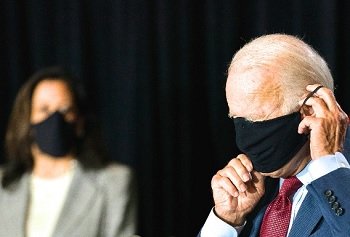 The Department of the Interior today announced it will hold an offshore wind energy lease sale on Oct. 29, 2024, for eight areas on the Outer Continental Shelf off Massachusetts, New Hampshire and Maine. If fully developed, these areas have a potential capacity of approximately 13 gigawatts of clean offshore wind energy, which could power more than 4.5 million homes. The announcement follows the Department’s recent announcement that it has approved more than 15 gigawatts of clean energy from offshore wind projects since the start of the Biden-Harris administration- equivalent to half of the capacity needed to achieve President Biden’s goal of 30 gigawatts of offshore wind energy by 2030.”The growing enthusiasm for the clean energy future is infectious. Today’s announcement – which builds on the execution of the nation’s first floating offshore wind energy research lease in Maine last month – is the result of years of thoughtful coordination between our team, the Gulf of Maine states, industry and the Tribes and ocean users who share our interest in the health and longevity of our ocean,” said Secretary Deb Haaland. more, (if you can stand it,) >>CLICK TO READ<< 12:05
The Department of the Interior today announced it will hold an offshore wind energy lease sale on Oct. 29, 2024, for eight areas on the Outer Continental Shelf off Massachusetts, New Hampshire and Maine. If fully developed, these areas have a potential capacity of approximately 13 gigawatts of clean offshore wind energy, which could power more than 4.5 million homes. The announcement follows the Department’s recent announcement that it has approved more than 15 gigawatts of clean energy from offshore wind projects since the start of the Biden-Harris administration- equivalent to half of the capacity needed to achieve President Biden’s goal of 30 gigawatts of offshore wind energy by 2030.”The growing enthusiasm for the clean energy future is infectious. Today’s announcement – which builds on the execution of the nation’s first floating offshore wind energy research lease in Maine last month – is the result of years of thoughtful coordination between our team, the Gulf of Maine states, industry and the Tribes and ocean users who share our interest in the health and longevity of our ocean,” said Secretary Deb Haaland. more, (if you can stand it,) >>CLICK TO READ<< 12:05
As Terrebonne recovers from Francine, some residents worry about its future
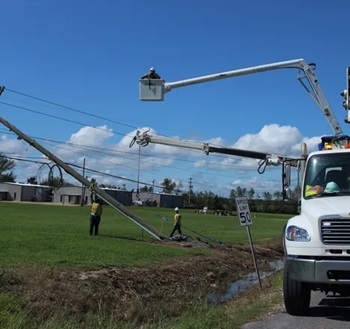 Recovery efforts continued Thursday in Terrebonne Parish, where thousands remained without electricity a day after Hurricane Francine made landfall there. While the Category 2 storm brought less severe property damage than recent storms, it left some residents with greater worries for the area’s future. Among them is Terrebonne Parish Councilwoman Kim Chauvin, who spent much of the day looking for and clearing clogged storm drains. One of the few remaining shrimpers in Louisiana, Chauvin and her family operate shrimp boats, a fuel and ice dock, a shrimp processing plant and seafood shop. Her home and businesses lost power when the storm approached, and she was still without electricity as of 8 p.m. Thursday. Entergy Louisiana reported less than 22,000 of its customers in Terrebonne Parish were powerless as of 7 a.m. Friday. more, >>CLICK TO READ<< 09:23
Recovery efforts continued Thursday in Terrebonne Parish, where thousands remained without electricity a day after Hurricane Francine made landfall there. While the Category 2 storm brought less severe property damage than recent storms, it left some residents with greater worries for the area’s future. Among them is Terrebonne Parish Councilwoman Kim Chauvin, who spent much of the day looking for and clearing clogged storm drains. One of the few remaining shrimpers in Louisiana, Chauvin and her family operate shrimp boats, a fuel and ice dock, a shrimp processing plant and seafood shop. Her home and businesses lost power when the storm approached, and she was still without electricity as of 8 p.m. Thursday. Entergy Louisiana reported less than 22,000 of its customers in Terrebonne Parish were powerless as of 7 a.m. Friday. more, >>CLICK TO READ<< 09:23
Will Reviving the Cod Industry Doom It Yet Again?
 It’s been thirty-two years since the federal government first closed the northern cod fishery. It was historically the colony’s main trade for centuries, but that changed, nearly overnight, in 1992, after a press conference at the downtown Radisson Hotel in St. John’s, when then federal fisheries and oceans minister John Crosbie announced a complete halt. Fishery workers would be compensated for ten weeks, at the rate of $225 a week, and then go on employment insurance. The meagre amounts were seen as an insult to the workers whose labour was responsible for a $700 million per year industry (almost $1.35 billion in 2024 terms)—and who recognized, in the mass layoff, the spectre of their culture on the brink of extinction. Of course, fishery workers weren’t the only people who would suffer from the shuttering. With fishing boats now idle, fuel sales dropped. Schools amalgamated across communities as young families moved elsewhere and school districts struggled to fill classrooms. Those of us who lived through it will remember how local businesses offering small luxuries—restaurants and cafeterias, hair salons, cinemas—all felt the sting of a laid-off workforce. more, >>CLICK TO READ<< 07:48
It’s been thirty-two years since the federal government first closed the northern cod fishery. It was historically the colony’s main trade for centuries, but that changed, nearly overnight, in 1992, after a press conference at the downtown Radisson Hotel in St. John’s, when then federal fisheries and oceans minister John Crosbie announced a complete halt. Fishery workers would be compensated for ten weeks, at the rate of $225 a week, and then go on employment insurance. The meagre amounts were seen as an insult to the workers whose labour was responsible for a $700 million per year industry (almost $1.35 billion in 2024 terms)—and who recognized, in the mass layoff, the spectre of their culture on the brink of extinction. Of course, fishery workers weren’t the only people who would suffer from the shuttering. With fishing boats now idle, fuel sales dropped. Schools amalgamated across communities as young families moved elsewhere and school districts struggled to fill classrooms. Those of us who lived through it will remember how local businesses offering small luxuries—restaurants and cafeterias, hair salons, cinemas—all felt the sting of a laid-off workforce. more, >>CLICK TO READ<< 07:48
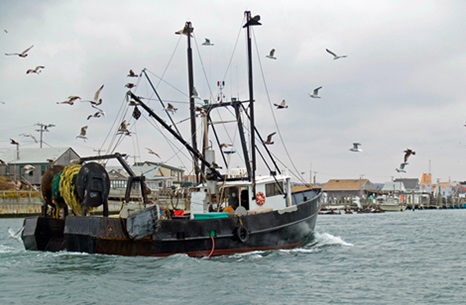
OPINION: Reel them in – Regional fisheries councils violate constitution and hurt accountability
That is the position in which many fishermen find themselves. They share a desire for sustainable fisheries and support some of the federal efforts at regulation. But they oppose certain federal water catch limits and allocations between commercial and recreation sectors that are set by regional fishery management councils made up of members who aren’t accountable through elections or to elected officials. Pacific Legal Foundation is representing these individuals and small businesses in courts around the country, making what we think is a simple argument based on the text and purpose of the Constitution. Specifically, that it requires that executive branch officials with significant authority be appointed by the president or a member of his cabinet. more, >>CLICK TO READ<< 06:40

































